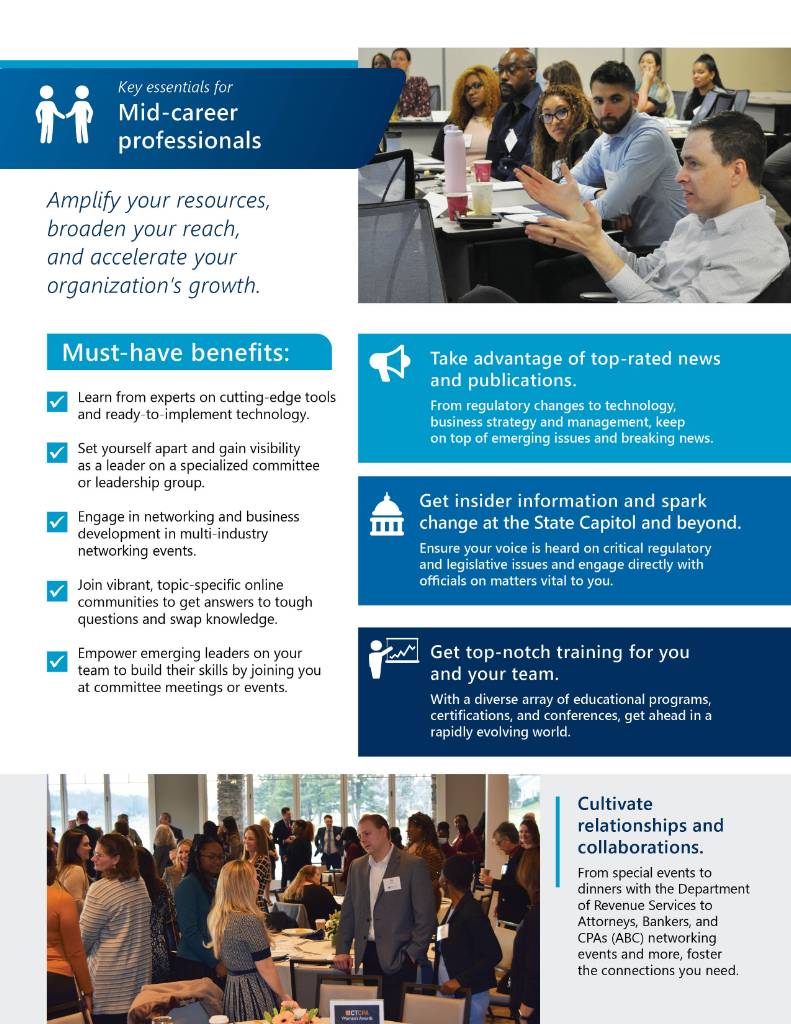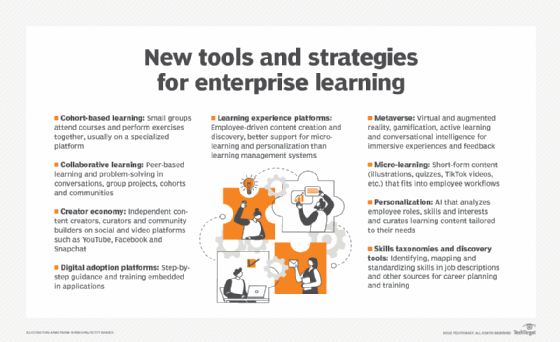Develop a strategy using certification and skill development tools. They enhance expertise and career growth.
Certifications validate your skills, making you more employable. Skill development tools help you learn and improve efficiently. Together, they provide a structured path to advance your career. Start by identifying relevant certifications in your field. Enroll in courses and use tools for hands-on practice.
Regularly update your skills to stay competitive. This approach ensures continuous learning and adaptability. It also signals commitment to potential employers. Build a habit of setting clear goals and tracking your progress. This strategic combination boosts your confidence and professional standing. Ultimately, it leads to better job opportunities and career advancement.
Importance Of Certification
Building a strategy with certification and skill development tools is crucial. Certifications validate your skills and knowledge in a specific field. They provide tangible proof of your expertise, enhancing your resume. This makes you stand out in a competitive job market.
Career Advancement
Certifications open doors to new job opportunities. They increase your chances of getting promoted. Employers value certified professionals more. A certification can lead to higher salaries and better job roles.
Many companies require certifications for certain positions. This means that having the right certification can be a prerequisite for the job you want. By obtaining certifications, you show your commitment to your career growth.
Industry Recognition
Certifications offer industry-wide recognition of your skills. They are often globally recognized, giving you credibility. This recognition can set you apart from other professionals in your field.
Industry leaders design these certifications. This ensures that the skills you learn are current and relevant. Being certified shows that you meet industry standards and can perform at a high level.
Certifications also connect you with a network of other certified professionals. This network can provide support, resources, and opportunities for collaboration.
| Benefit | Description |
|---|---|
| Career Growth | Certifications can lead to promotions and higher salaries. |
| Job Opportunities | Many jobs require specific certifications. |
| Industry Credibility | Certifications are recognized by industry leaders. |
| Networking | Connect with other certified professionals. |
To summarize, certifications play a vital role in career advancement and industry recognition. They provide proof of your skills, leading to better job opportunities and higher salaries.
Identifying Key Skills
Identifying key skills is crucial for building a strong strategy. A well-rounded skill set can open doors to new opportunities. By focusing on the right skills, you can align your career with market demands and personal strengths.
Market Demand
Understanding market demand is essential for skill development. By targeting in-demand skills, you can increase your employability. Here’s a list of ways to identify market demand:
- Research job postings
- Analyze industry reports
- Consult with industry professionals
Use this information to focus on skills that are currently sought after. This ensures you stay relevant in your field.
Personal Strengths
Leveraging personal strengths is equally important. Knowing your strengths can help you excel in your career. Consider these steps to identify your strengths:
- Self-assessment tests
- Feedback from peers and mentors
- Reflect on past successes
Combining market demand with personal strengths creates a balanced strategy. This approach helps you remain competitive and fulfilled in your career.
Choosing The Right Certifications
Building a strategy with certifications and skill development tools is crucial. Choosing the right certifications can make or break your career path. This section will guide you through selecting the best certifications for your professional growth.
Accredited Programs
Accredited programs ensure that your certification is recognized and respected. Look for programs from reputable institutions. Accreditation guarantees a high standard of education and training.
Top Accredited Certification Bodies:
- Project Management Institute (PMI)
- International Organization for Standardization (ISO)
- CompTIA
Benefits of Accredited Programs:
- Industry recognition
- Higher job prospects
- Enhanced skill validation
Relevance To Career Goals
Choosing certifications relevant to your career goals is essential. Align your certification with your desired job role. This ensures you gain skills that employers value.
Steps to Ensure Relevance:
- Identify your career objectives
- Research industry demands
- Select certifications that match your goals
Example Career Paths and Certifications:
| Career Path | Recommended Certification |
|---|---|
| Project Management | PMP (Project Management Professional) |
| Cybersecurity | CISSP (Certified Information Systems Security Professional) |
| Data Science | Certified Data Scientist |
Key Points:
- Focus on certifications that match your career goals
- Ensure the certification is in demand
- Look for programs that offer practical skills

Credit: www.aihr.com
Skill Development Tools
Investing in skill development tools is crucial for career growth. These tools help individuals stay competitive. Let’s explore three effective methods for skill development.
Online Courses
Online courses offer flexibility and a vast range of subjects. Platforms like Coursera, Udemy, and LinkedIn Learning provide numerous options. These courses allow you to learn at your own pace. They also offer certificates upon completion. This can be beneficial for your resume. Many courses are taught by industry experts. This ensures you receive high-quality education. Additionally, some courses are free or affordable. This makes skill development accessible to everyone.
Workshops And Seminars
Workshops and seminars provide hands-on learning experiences. They often cover specific topics in-depth. Attending these events can help you gain practical skills. Networking is another benefit of workshops. You can meet professionals and expand your network. Many organizations host these events regularly. They can be short-term, lasting a few hours, or long-term, spanning several days. The interactive nature of workshops makes learning engaging. You can ask questions and get immediate feedback.
| Tool | Benefits |
|---|---|
| Online Courses | Flexible, Affordable, Wide Range of Subjects, Certificates |
| Workshops and Seminars | Hands-on Learning, Networking, In-depth Knowledge, Interactive |
Creating A Learning Plan
Developing a learning plan is essential for certification and skill development. This plan helps you stay organized and focused. By setting clear goals, timelines, and milestones, you can effectively track your progress. Let’s dive into the key components of creating a learning plan.
Setting Goals
Start by identifying what you want to achieve. These goals should be specific, measurable, achievable, relevant, and time-bound (SMART). For example, aim to earn a specific certification or master a particular skill.
- Specific: Clearly define your goal.
- Measurable: Ensure you can track your progress.
- Achievable: Set realistic targets.
- Relevant: Align goals with your career path.
- Time-bound: Set a deadline.
Timelines And Milestones
Break your goals into smaller tasks. Assign timelines and milestones to each task. This will help you manage your time effectively.
| Task | Timeline | Milestone |
|---|---|---|
| Complete online course | 4 weeks | Course completion |
| Practice coding | 2 weeks | Build a project |
| Take certification exam | 1 week | Pass the exam |
Tracking these milestones will keep you motivated and on track. Regularly review and adjust your timelines if necessary. This ensures you stay on course without feeling overwhelmed.

Credit: www.ctcpas.org
Balancing Work And Study
Balancing work and study can be challenging. Certification and skill development require dedication. This balance is essential for career growth. Proper planning can make this balance easier to manage.
Time Management
Effective time management is crucial. Create a schedule that fits your work and study. Use tools like calendars and planners. Set clear deadlines for each task. Allocate specific hours for learning and working.
Consider using digital tools like:
- Google Calendar
- Microsoft Planner
- Asana
These tools help you track your progress. They ensure you stay on top of your tasks. Stick to your schedule to avoid last-minute rush.
Prioritizing Tasks
Learn to prioritize your tasks. Identify the most critical tasks first. Use the Eisenhower Matrix to decide:
| Urgent | Not Urgent |
|---|---|
| Important | Important but not urgent |
| Urgent but not important | Not important |
This matrix helps you focus on what matters most. It ensures you handle important tasks promptly.
Break down larger tasks into smaller steps. This makes them more manageable. Use bullet points to list these steps:
- Research topic
- Outline key points
- Write first draft
- Review and edit
Completing small tasks gives you a sense of achievement. It keeps you motivated to continue.
Tracking Progress
Tracking progress is crucial in building a strategy with certification and skill development tools. Regular assessments, feedback, and improvement play key roles in this process. These elements ensure continuous growth and skill enhancement.
Regular Assessments
Regular assessments help track individual progress. They show where a learner stands. Assessments can be quizzes, tests, or practical tasks. These activities measure the understanding of new skills. They also highlight areas needing improvement.
Benefits of Regular Assessments:
- Identify strengths and weaknesses
- Measure skill development
- Set realistic goals
Tip: Use a variety of assessment types to get a full picture.
Feedback And Improvement
Feedback is essential for growth. It helps learners understand their performance. Constructive feedback guides them to improve. Feedback can come from instructors, peers, or self-evaluation.
Steps to Effective Feedback:
- Be specific and clear
- Focus on actions, not the person
- Provide actionable suggestions
Pro Tip: Regular feedback sessions motivate learners to stay on track.
Combining regular assessments with feedback creates a powerful learning loop. This loop drives continuous improvement and skill mastery.

Credit: www.techtarget.com
Leveraging New Skills
Leveraging new skills acquired through certification and skill development tools can significantly enhance your career trajectory. Gaining new competencies not only boosts your confidence but also makes you more valuable in the job market. Let’s explore how you can apply these new skills effectively in the workplace and showcase them to potential employers.
Applying In The Workplace
Applying new skills in the workplace can transform your professional journey. Start by identifying areas where your new skills can be utilized. This could involve taking on new projects, mentoring colleagues, or optimizing existing processes.
- Project Management: Use project management tools like Trello or Asana.
- Data Analysis: Implement data analysis techniques to improve decision-making.
- Communication: Enhance team collaboration with effective communication strategies.
Employers value employees who proactively apply their new skills. Show initiative by offering to lead projects or by suggesting improvements.
Showcasing To Employers
Showcasing your new skills to employers is crucial for career advancement. Highlight your certifications and skills in your resume and LinkedIn profile. Use bullet points to make them stand out.
- Resume: Include a dedicated section for certifications and skills.
- LinkedIn: Update your profile with new skills and endorsements.
- Portfolio: Create a digital portfolio showcasing your work and achievements.
During interviews, discuss how your new skills have positively impacted your previous roles. Provide specific examples and metrics if possible. This demonstrates your ability to apply knowledge effectively and achieve results.
Frequently Asked Questions
What Are Certification And Skill Development Tools?
Certification and skill development tools are resources that help individuals gain new qualifications and improve their skills. These tools include online courses, training programs, and professional exams.
How Do Certification Tools Benefit My Career?
Certification tools enhance your resume, demonstrate your expertise, and make you more competitive in the job market. They also open up new career opportunities and potential salary increases.
Are Online Certification Courses Effective?
Yes, online certification courses are effective. They offer flexibility, a wide range of topics, and are often recognized by employers. Online courses also allow you to learn at your own pace.
What Skills Should I Focus On Developing?
Focus on developing skills that are in high demand in your industry. These may include technical skills, soft skills, and leadership abilities. Research the latest trends in your field to stay updated.
Conclusion
Certification and skill development tools boost career growth. They enhance your expertise and confidence. Strategize your learning for better results. Equip yourself with the right skills to stay competitive. Embrace continuous learning for long-term success. Investing in these tools is a smart move.
Start building your strategy today and achieve your career goals.





